In our current society, we’re continuously encouraged to maintain a positive attitude, work harder, achieve more, and never be satisfied. However, if you’ve ever felt drained trying to keep up, you’re not alone. Mark Manson’s The Subtle Art of Not Giving a F*ck offers a refreshing challenge to the culture of perpetual self-improvement.
Rather than offering an instant solution for happiness, the book shares a candid and brutally honest perspective: you possess a finite number of “f*cks” to give, so allocate them judiciously. It’s not about being indifferent—it’s about caring intensely, but only about what truly matters.
After absorbing the book, I came away with 13 transformative lessons. Here’s what resonated most.
Table of Contents
1. Understanding the Backwards Law: Why Chasing Happiness Only Makes You Miserable
The initial concept from The Subtle Art of Not Giving a F*ck is a paradox known as the Backwards Law: the more you pursue happiness, the more elusive it becomes. When you frequently assess your life against a benchmark of “I need to be happier,” you reinforce the belief that you are deficient.
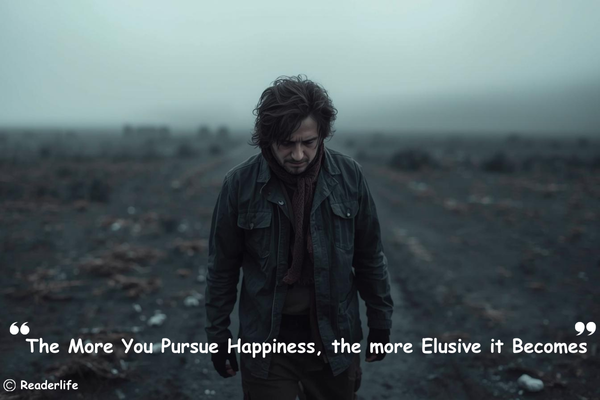
Rather than pursuing positivity, the book encourages you to embrace the challenges of life. Happiness isn’t something you can compel—it naturally emerges when you stop fixating on it. By accepting discomfort, failures, and flaws, you inadvertently create room for genuine peace.
Consider it like sand in your palm: grip it too firmly, and it will fall through your fingers. Hold it lightly, and it will remain.
2. Redefining Maturity: Choosing the Struggles That Truly Shape Your Life
Many individuals think that maturity involves handling bills, being serious, or steering clear of risks. However, “The Subtle Art of Not Giving a F*ck” challenges that notion. Maturity is fundamentally about wisely choosing your struggles.
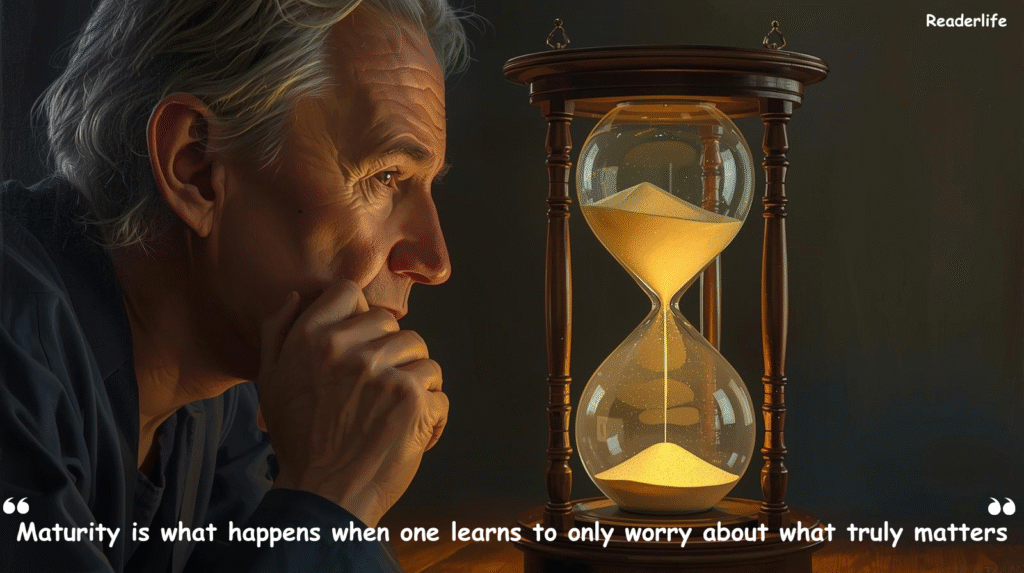
Life is shaped not by your desires, but by the suffering you are ready to accept. Do you aspire to be fit? Then you have to welcome the challenge of workouts and self-discipline. Do you seek a meaningful relationship? Then you need to embrace the challenges of vulnerability, compromise, and emotional transparency.
The distinction between a mature person and an immature one lies not in their aspirations, but in their readiness to face the pain associated with those aspirations.
3. Seeing Struggles as Filters: How Pain Creates Meaning and Clarity
One of the most enlightening messages in The Subtle Art of Not Giving a F*ck is that suffering is inevitable, yet it carries significance. Challenges serve as screens that distinguish what is truly important from what is not.
For instance, the discomfort of artistic rejection filters out those seeking immediate recognition from those who are authentically dedicated to their art. The hardship of training separates those desiring quick outcomes from those prepared to commit to long-term development.
Instead of shunning struggle, Manson encourages embracing it—because the challenges you select define who you are.
4. Not Everything Deserves Your Energy: Learning to Stop Giving a Damn About the Trivial
Everyone has a finite amount of energy, and many of us squander it on unimportant matters, such as idle chatter, online disputes, and comparing ourselves to unfamiliar faces on social media. The Subtle Art of Not Giving a F*ck emphasises the importance of ceasing to waste your time on insignificant distractions.
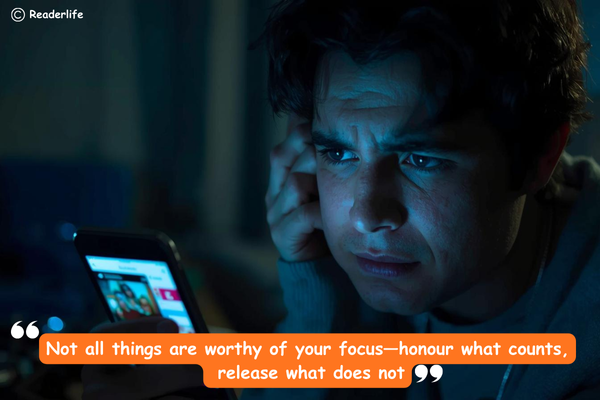
This doesn’t imply being indifferent or unsympathetic. It involves focusing your attention on what truly counts. If you care too much about every little thing, you’ll exhaust yourself. However, if you reserve your care for what is significant, your life will feel more purposeful and less burdened.
5. The Courage to Embrace the Negative: Why Facing Pain Builds Resilience
Society often tells us to stay positive all the time, but “The Subtle Art of Not Giving a F*ck” challenges this idea of toxic positivity. Ignoring problems or pretending everything is fine does not lead to real growth; instead, it delays it.
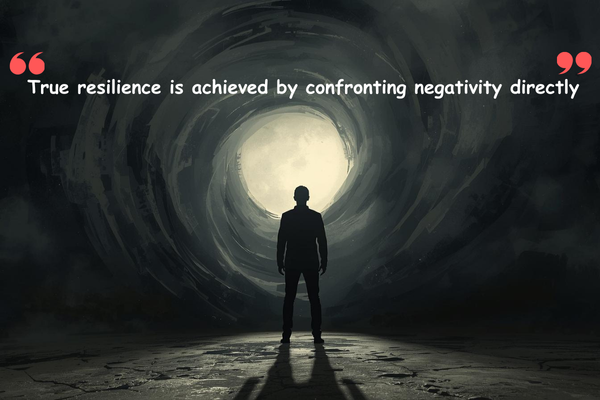
True resilience is achieved by directly confronting negativity, including pain, failure, and rejection. By facing your issues instead of fleeing from them, you build strength. Pain can serve as a valuable lesson, and setbacks can act as catalysts for personal growth and progress.
Instead of asking, “How can I steer clear of pain?” a more beneficial question is, “What kind of pain am I prepared to endure to achieve the life I desire?”
6. You Are Not Special, and That’s a Beautiful Truth
One important lesson from The Subtle Art of Not Giving a F*ck is that you are not special. Many of us have been told we’re meant for greatness. However, most people will live ordinary lives, and that’s perfectly fine.
This truth can relieve the pressure always to prove you are exceptional. When you let go of unrealistic expectations, you can start to enjoy simple moments, like a quiet walk, a good laugh, or a restful night.
Being average does not mean your life has no meaning. It means you can focus on what truly brings you joy instead of feeling weighed down by the need to be extraordinary.
7. The Power of Meaningful Suffering: Choosing Pain With Purpose
Not all suffering carries the same weight. In The Subtle Art of Not Giving a F*ck, a clear distinction is made: suffering that has significance helps you grow, while purposeless suffering brings you down.
Pursuing a fitness goal, building a relationship, or creating something meaningful can be uncomfortable, but this discomfort is valuable. It challenges you to grow. On the other hand, trying to impress people you don’t care about or seeking validation only leads to suffering without any benefit.
Consider this: Is this pain offering me a lesson or draining my energy for no reason? That’s the way to distinguish worthwhile struggle from meaningless hardship.
8. Responsibility as Freedom: Why Owning Your Life Is True Power
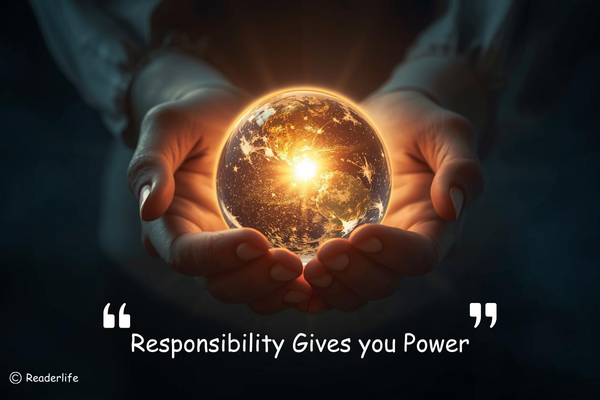
One of the most empowering lessons from The Subtle Art of Not Giving a F*ck is that taking responsibility gives you power.
Life can be unfair, and bad things can happen that you didn’t cause. However, even when you can’t control what happens, you can control how you respond. Taking responsibility doesn’t mean blaming yourself; it means deciding how to act next.
When you take responsibility, you stop feeling like a victim. You stop waiting for someone else to help you. Responsibility enables you to turn confusion into understanding.
9. The Strength of Boundaries: Saying No Without Guilt
We often say yes because we feel guilty, afraid, or because it’s a habit. In the book, The Subtle Art of Not Giving a F*ck, Manson explains that saying no shows self-respect.
Every time you say yes to something unimportant, you might be saying no to something meaningful. Setting boundaries protects your energy, time, and mental health. They help you focus on relationships and tasks that truly improve your life.
It’s not selfish to say no—it’s necessary.
10. Why Embracing Uncertainty Unlocks Growth and Possibility
Many of us want certainty because it feels safe. However, certainty can also hold us back. “The Subtle Art of Not Giving a F*ck” argues that genuine growth occurs when we confront uncertainty.
You don’t need to plan every detail of your life. You don’t need guarantees. Instead, you need to be curious, humble, and brave enough to move forward even when the outcome is unclear.
Uncertainty isn’t a threat; it’s an opportunity for new experiences and discoveries.
11. Redefining Failure: How Falling Short Brings You Closer to Success
Failure is not the opposite of success; it is part of the journey to get there. This is a key lesson from The Subtle Art of Not Giving a F*ck.
Every failure gives you feedback. It shows you what doesn’t work, helps you improve your skills, and builds your character. If you aren’t failing at anything, it may mean you aren’t trying things that matter.
Instead of fearing failure, see it as a guide that leads you to grow.
12. The Power of Saying No: Making Space for the Yes That Truly Matters
Every “no” you say opens up space for a more meaningful “yes.” The Subtle Art of Not Giving a F*ck teaches us that our lives are shaped more by what we remove than by what we add.

If you say yes to every request, you won’t have time for your true passions. By protecting your time, you make room for relationships, goals, and experiences that bring lasting happiness.
Boundaries do more than protect; they also foster creativity.
13. Finding Peace in the Ordinary: Why Simple Living Can Be Extraordinary
In a world that values being outstanding, the last lesson from The Subtle Art of Not Giving a F*ck is that living an everyday life is enough.
Always chasing achievements can leave you feeling empty. Instead, finding joy in simple things—a cup of coffee, a good conversation, a daily routine—can bring you lasting peace.
When you stop trying to impress others and focus on simply living, you can find the extraordinary in the ordinary.
Also read: Life Changing Lessons from The Seven Habits of Highly Effective People
Final Reflection: Living the Subtle Art in Daily Life
What “The Subtle Art of Not Giving a F*ck” genuinely teaches is that true happiness does not stem from acquiring more, achieving more, or becoming more—it arises from selecting less, but in a better way.
The skill lies in understanding what deserves your concern and what should be released. It’s about reserving your energy for what truly signifies importance and accepting discomfort when it serves a purpose.
Therefore, the next time you feel overwhelmed, consider asking yourself: Is this worth my concern?
Chances are, much of it isn’t. And that’s the beauty of it.

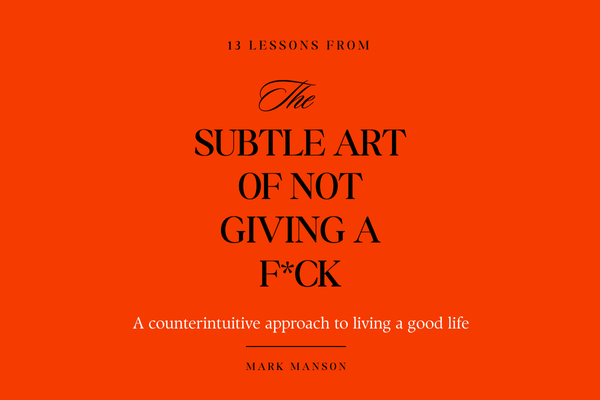
3 thoughts on “13 Profound Life Lessons I Learned from The Subtle Art of Not Giving a F*ck”